Meet a few students who blend the power of their passions across academic departments and use those skills to advance their approaches to solving problems.
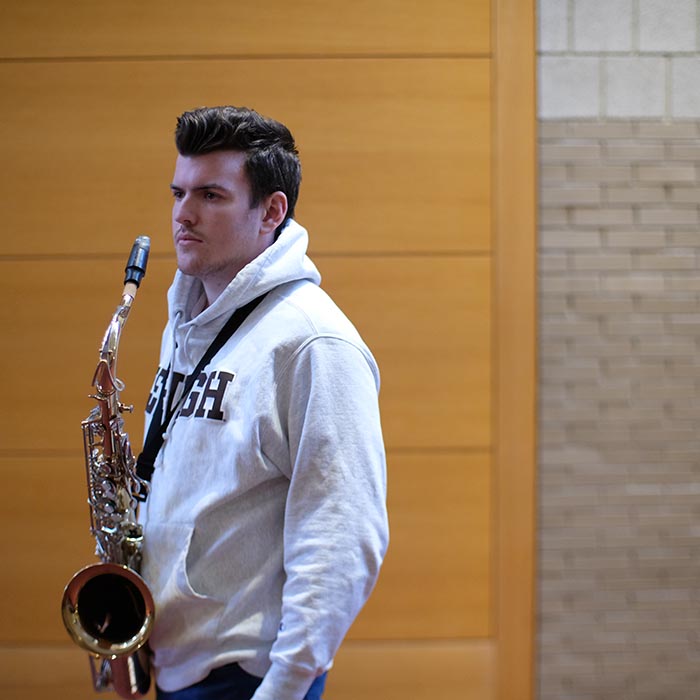 Ryan Colflesh ’23
Ryan Colflesh ’23
Integrated Business and Engineering (IBE) and Computer Science, Dual Degree
Music
In third grade, Colflesh began playing alto saxophone. Then in seventh grade, his teacher asked if he would switch to tenor saxophone. He agreed and immediately appreciated the bigger size and broader range. Throughout high school he played in the concert band and jazz band.
He packed his instrument when coming to Lehigh with the plan of playing in the jazz groups on campus. He started in the jazz orchestra and progressed to join the jazz ensemble. His favorite saxophone players include Charlie Parker and Sonny Rollins.
But his musical tastes fly far from jazz as Colflesh writes and records electronic music under the name Slaw (which works well with the first syllable of his last name). He started making those tunes as an eighth grader and is close to releasing an album of garden-inspired songs. It helps that he took several composition classes at Lehigh and was a member of the electronic music society for a brief spell.
Major
For his IBE capstone, Colflesh served as a consultant to a startup called Learnics that helps researchers compile scholarly works into bibliographies. His capstone in CS had him build an enrollment-forecasting system for Lehigh’s Computer Science Department. “So many students want to study CS, but only majors can take the courses since the department is at capacity,” he says.
Intersections
While there was a joy in keeping music as a hobby, Colflesh sees how the structure of music based on his composition classes coincides with the structure in his CS classes. “Both forms require structure in order to allow for expression,” he says.
What’s next
A summer internship as a data engineer in the technology department at Jefferies, an investment banking and capital markets firm, has turned into a full-time position. He starts mid-summer in the Manhattan office, knowing he can reap the benefits of the jazz and electronic scene in NYC.
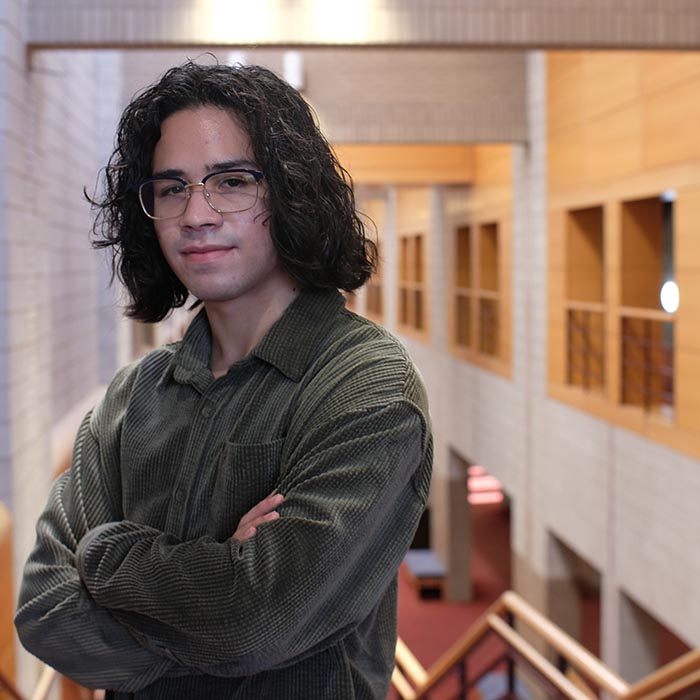 Justin Velez ’24
Justin Velez ’24
Music and Computer Engineering, Dual Degree
Music
From kindergarten through sixth grade, choir was mandatory at Velez’s school. By sixth grade though he was hooked. He remained in choir through high school graduation. He began performing in musicals in fifth grade — some favorite shows include Sound of Music, Once on This Island, and In the Heights, where he was cast as the lead. He studied music theory in an AP class and was selected for All State Choir.
On campus he performs in the university choir and glee club. Off campus, he sings with the church choir at St. Anne’s. He also performs in the a cappella group Off the Record, which recently earned best arrangement and best choreography at the International Championship of Collegiate A Cappella.
Major
He came to Lehigh not sure what he wanted to study but knew it would combine music, science, and math. “As a Gryphon, the first group of friends I made were all engineering majors, so I began to study computer engineering and my passions of voice and piano,” he says. “I am on financial aid, which helps so much with my piano and voice lessons and provides access to this amazing faculty and group of professionals who are involved in our campus groups,” he says.
Intersections
“I always had conflicting ideas of where my life would lead,” he says. “But the beautiful thing about Lehigh is that it is easy to do both.” The ChatGPT trend in AI text generating has him thinking about blending his majors together by creating a music version of that software that composes songs. “It would blend my knowledge of coding and music history and help others learn and create original works,” he says.
What’s next
He is beginning to make plans for his dual capstones. While engineering will be project based, he might compose something for music in addition to performing a series of vocal tracks.
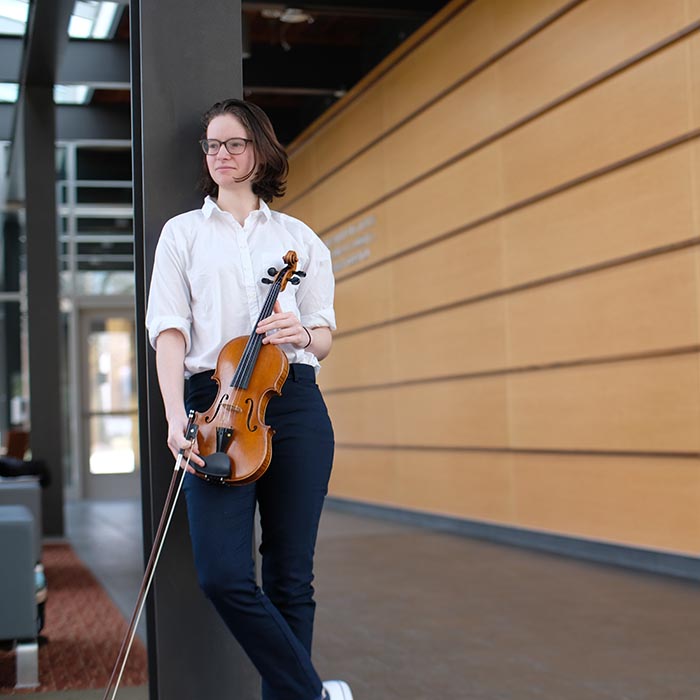 Erin Klus ’24
Erin Klus ’24
Chemistry and Physics, Dual Degree, and a Minor in Music
Music
Klus has been playing violin in the orchestra for 10 years, earning all-county and regional honors and playing at notable venues, including Carnegie Hall and Kennedy Center. When she toured Lehigh in high school, she stopped by Zoellner where she bumped into Michael Jorgensen, teaching associate professor. They talked for an hour about the music program.
“When I left, I knew that I had to come to Lehigh because it could feed both passions of mine as a scientist and performer,” she says. Jorgensen remembered her when she auditioned for the university orchestra. For four years she has performed in that ensemble, with a highlight being a recent show under a guest conductor, Wu Fei, where the group played an original composition that included improvisational sections.
At her final spring concert she will perform the Mozart concerto for violin in D major. It requires about five hours of practice a week in addition to lessons. Klus is also in her second composition class and has created several atonal contemporary pieces for flute, clarinet, oboe, and violin.
“My professor helped me learn to appreciate the beauty in atonal compositions,” she says. “I now can hear the genius of it — the patterns of notes that can both restrict and allow a greater expression of emotion. It is a very freeing form.” She also plays piano and acoustic guitar for fun, jamming with friends.
In addition to her musical talents, Klus works on the technical side of theater productions at Zoellner — she’s head electrician for a spring main stage production.
Major
She came to Lehigh for chemistry and later added physics. Her capstone in chemistry focuses on inorganic synthesis of nanoparticles, specifically the electrochemistry of selenium. Over her four years she has also written research review papers on catalytic mechanisms for polystyrene recycling and the material properties of CrVN coatings.
Intersections
“Music and science complement each other so well,” she says. “Composition feels like a logic puzzle with certain chords, voices, and instruments placed in certain patterns. It’s like solving 12 sudoku puzzles at once. The same thinking goes into solving problems in chemistry.”
What’s next
One day her chemistry adviser, James Roberts, associate professor, told her about an online seminar through the American Chemical Society on chemical safety in the arts. It seemed to align her interests perfectly. She reached out to that seminar presenter, who pioneered the idea of protecting film and television casts and crews when working in scenes with chemical reactions. She soon will join that pioneer and become certified as a safety consultant in the arts.
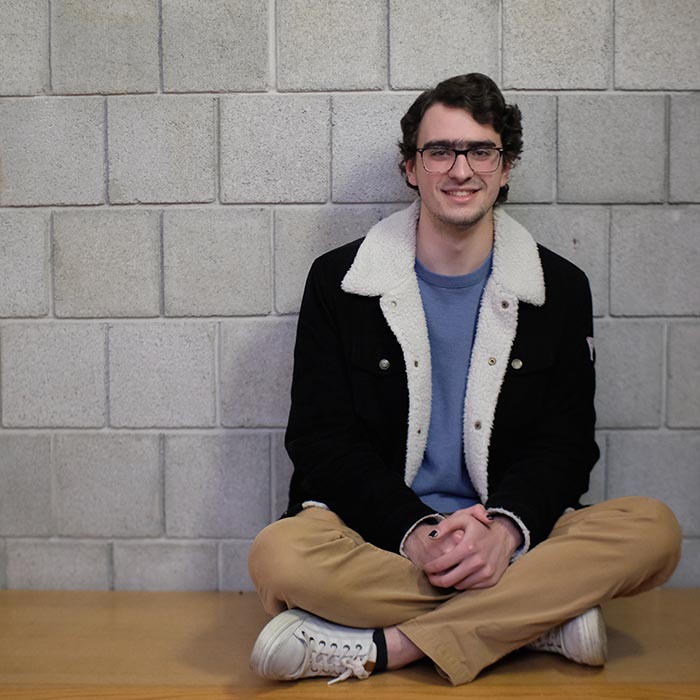 Jacob Thompson ’23
Jacob Thompson ’23
Chemical Engineering Major with Minors in Music and Biotechnology
Music
Thompson joined the choir in middle school. By high school, he was active in the choir and musical theater. He sought a university that would allow him to continue this interest in music, knowing it paired so well with his goals in engineering. When he arrived at Lehigh, he dove in, joining choir, glee club, and Lehigh Melismatics, the oldest all-gender a cappella group on campus.
Beyond performing, Thompson has held leadership positions in each group, including recruitment chair, manager, and music director. He spends about 12 hours each week dedicated to practices; nearly half of those hours have him teaching, writing sheet music, and arranging pieces. The baritone also takes private voice lessons. A standout moment in his Lehigh music career was the work invested in a Nick Jonas song for the International Championship of Collegiate A Cappella.
Major
He serves as a Rossin Junior Fellow, mentoring other ChemE students. For his capstone project, Thompson is part of a three-person team designing an ethylbenzene plant that must generate a certain amount of product at a desired purity. “I’m glad I chose the major with its wide breadth of skills and core principles that I have tailored to biotechnology,” he says.
Thompson has worked in two campus research labs, including that of Angela Brown, associate professor, where he fused liposomes to target the delivery of antibiotics. He also held an internship at Rapiscan Systems where he worked to detect trace amounts of narcotics and explosives in screening equipment.
Intersections
“My experience as a music leader and chemical engineer has taught me that there is never one way to solve a problem,” he says. “There are always unique ways to tackle an issue.”
What’s next
After a summer internship at Moderna, Thompson will attend an intensive one-year master’s program in bioprocess engineering at the University of California at Berkeley. “I want to take life-saving benchtop research and scale it into new products,” he says.
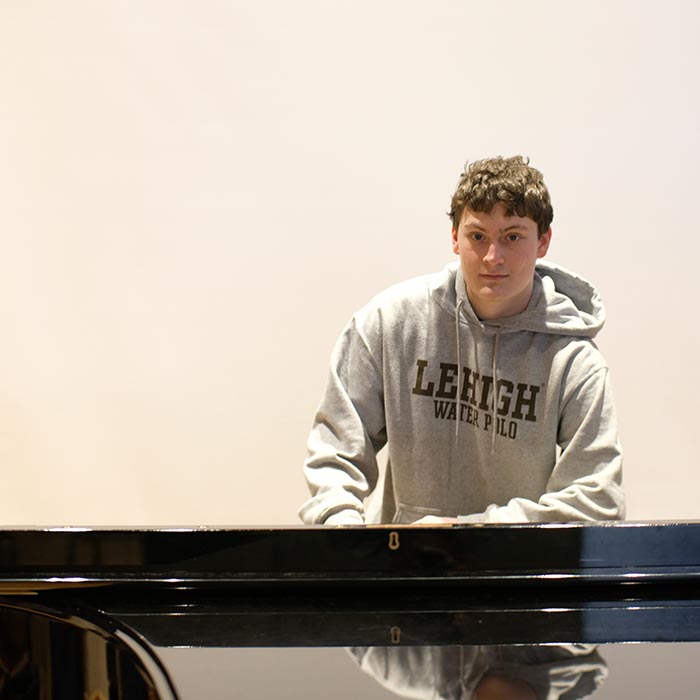 Tedd Stabolepszy ’26
Tedd Stabolepszy ’26
Computer Science and Engineering with a Minor in Music
Music
Stabolepszy learned to read, both music and words, at age six. That’s when he began piano lessons. Inspired by the music he heard at church, he asked the music director there to teach him. The music director approached Stabolepszy’s mom to see if her kindergartner was serious.
When able to begin an instrument in elementary school, he selected alto saxophone. In the first year, he became so proficient so quickly that his instructor asked him to consider a more challenging instrument. That’s when he began on the bassoon. He auditioned and was selected for district, regional, and all-state orchestra for bassoon, but his favorite was being selected for district and regional piano accompanist of Pennsylvania.
He played piano in the pit orchestra for all of his school’s musicals, with a few favorites being Chicago, Newsies, and Jesus Christ Superstar. He has received a Music Department scholarship that helps cover his lessons. He puts those lessons to work as a member of the wind ensemble and orchestra.
Major
As a first-year, he is taking many introductory courses designed to teach him ethics and programming. Of course, he’s also taking math and science. It is an intense load, but music is still a key component of his education. “Lehigh offers a perfect balance in a liberal arts education, so I can be a musician and scientist,” he says.
Intersections
“Programming comes naturally to me,” he says. “My areas of interest seem like opposites, but as they say, opposites attract. They both have formulas to follow and expressive freedom to find.”
What’s next
Immediately, Stabolepszy plans to provide the piano accompaniment at a high school performance of Into the Woods. The shows are timed perfectly for when he will be home for spring break. Further down the road, he’s like to own his own business and specialize in machine learning, building algorithms all the while playing music for shows and church.
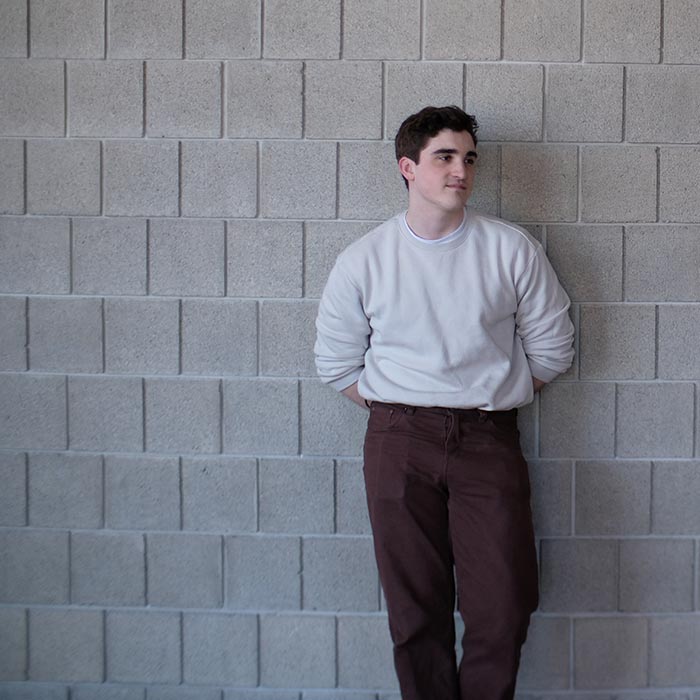 Garrett LeBoutillier ’23
Garrett LeBoutillier ’23
Civil engineering with a Minor in Music
Music
LeBourillier was active in chorus in high school, singing in the choir, chamber music ensemble, a cappella group, and barbershop quartet. When he looked at Lehigh, he knew it had great engineering but was not thinking about music, only to discover the strong choral program. He auditioned for the choir and joined the glee club.
His greatest growth has come from his involvement in Off the Record, a campus a cappella group. He serves as the music director and spends many hours listening, giving notes, and problem-solving.
“It is a very rewarding process,” he says. The number of groups he’s part of is tricky though. “It requires a commitment, and it can be a challenge to navigate scheduling in order to attend all the rehearsals, performances, and competitions,” he says.
Major
His love of math and science began in high school, and as he explored the many engineering options during his first-year introductory courses at Lehigh, he found geotechnical engineering within the civil engineering program. He focused on it in his capstone as his group worked on a foundation for a soon-to-be-constructed corporate office in downtown Allentown. He also worked for a transportation engineering firm as an intern where he analyzed current traffic flows and provided reports on viable routes in accordance with PennDot regulations.
Intersections
“In my music, I apply engineering principles,” he says. “Engineering requires a meticulous and thorough approach where we ask questions, seek assistance, and analyze information. I use that same problem-solving in music as I interpret pieces and lead groups.”
What’s next
This summer he is headed to Pittsburgh to intern as a consultant on geotechnical projects. Then in the fall he returns to Lehigh where he will earn his master’s in civil engineering. “I like Lehigh, know the professors, enjoy the communities I’m in, and have a good thing going,” he says. Luckily, that means he can continue to perform with many of the same groups that have meant so much to him over the past few years.